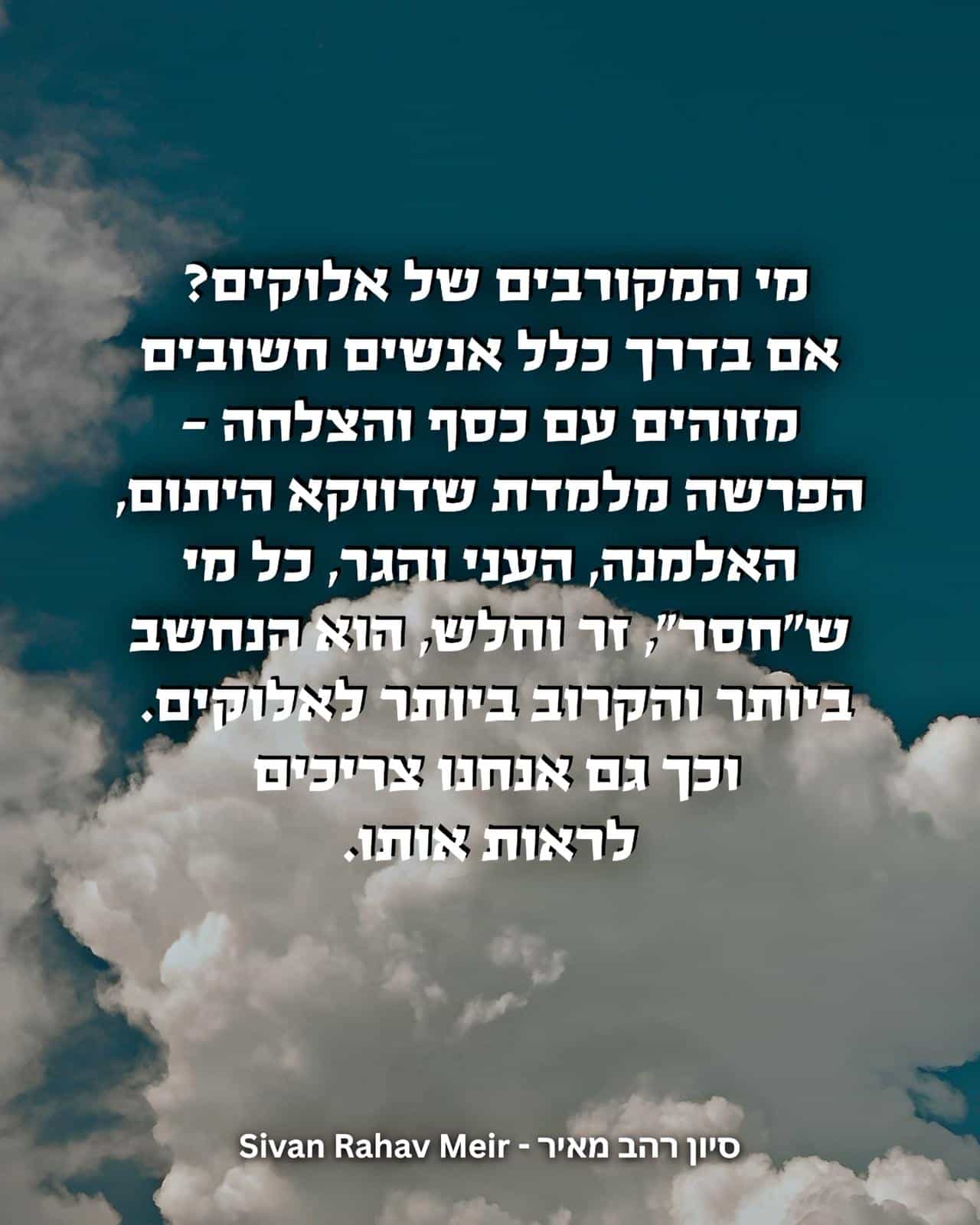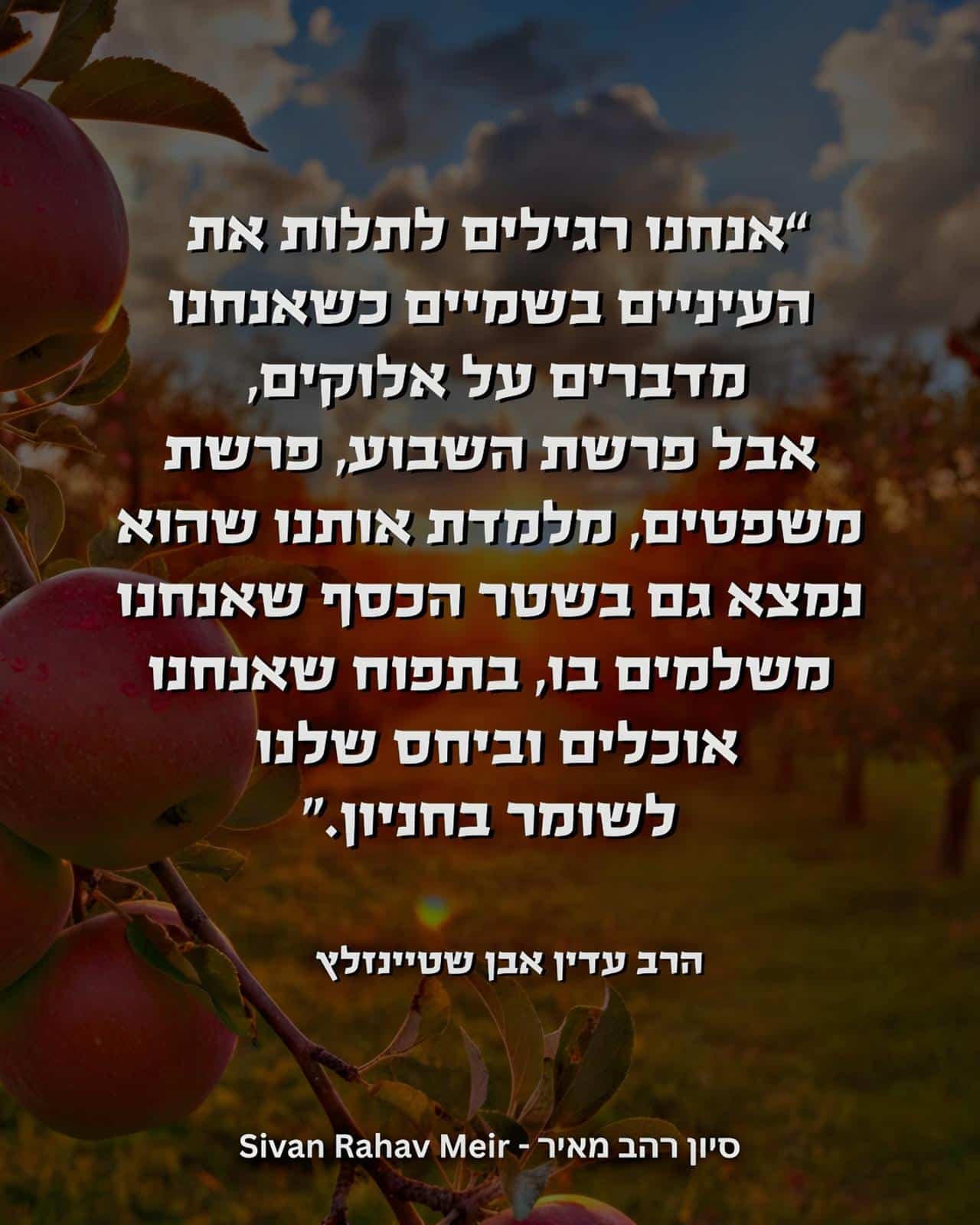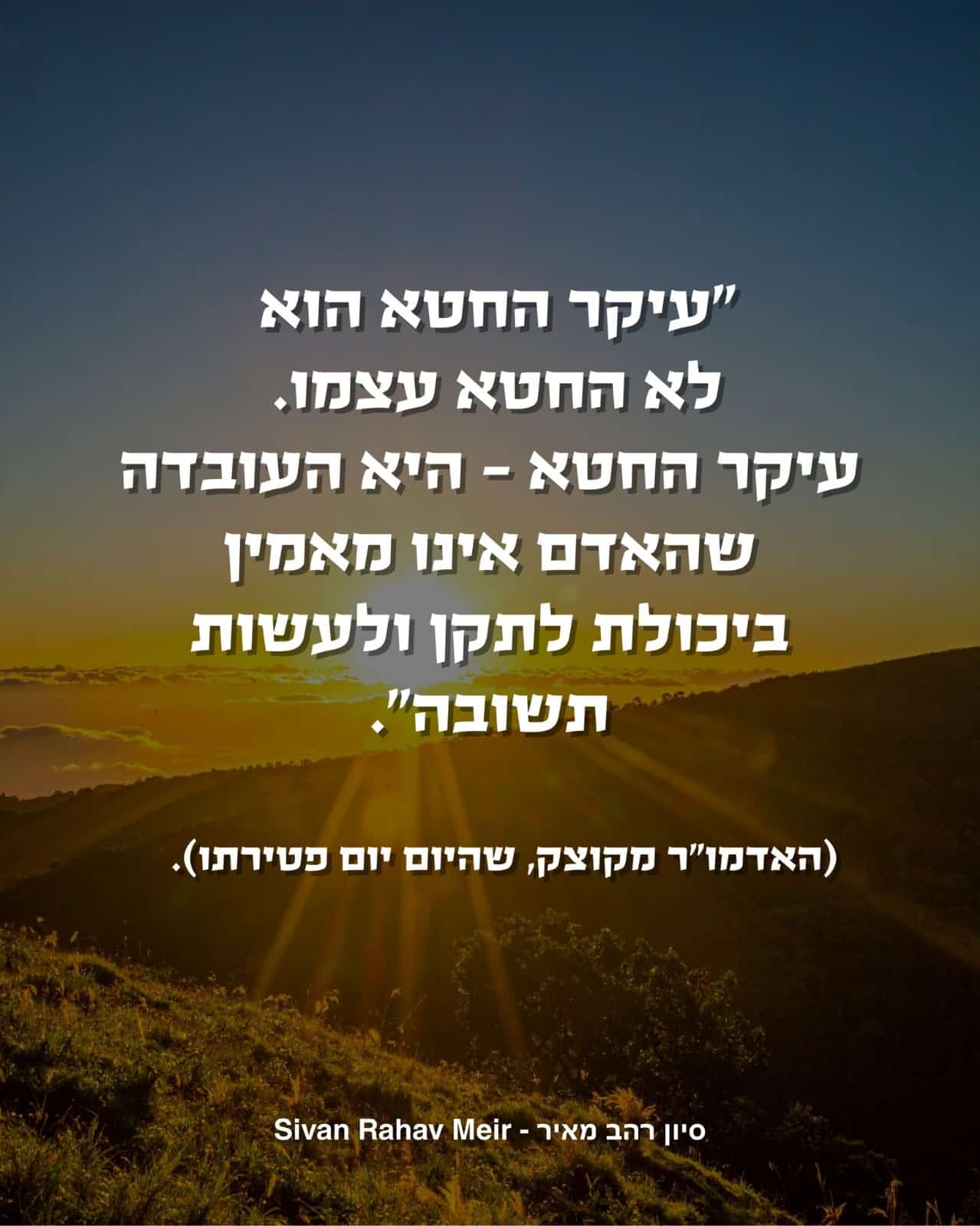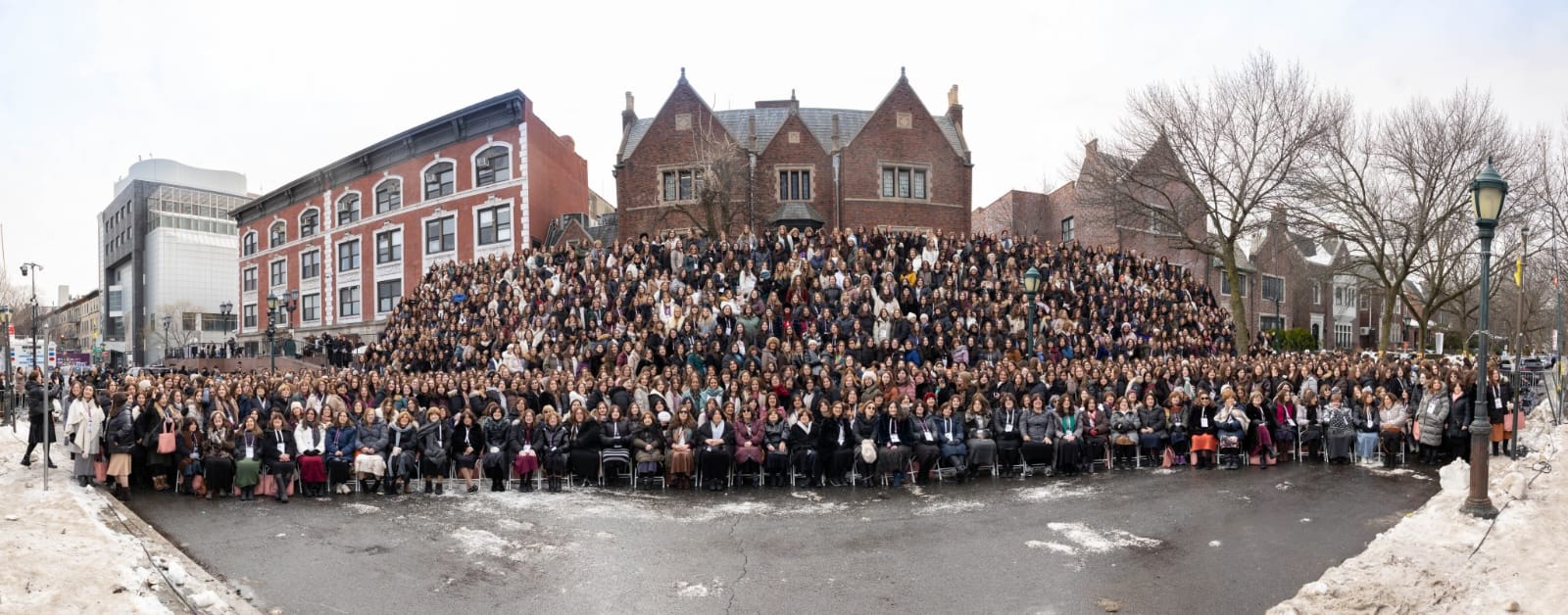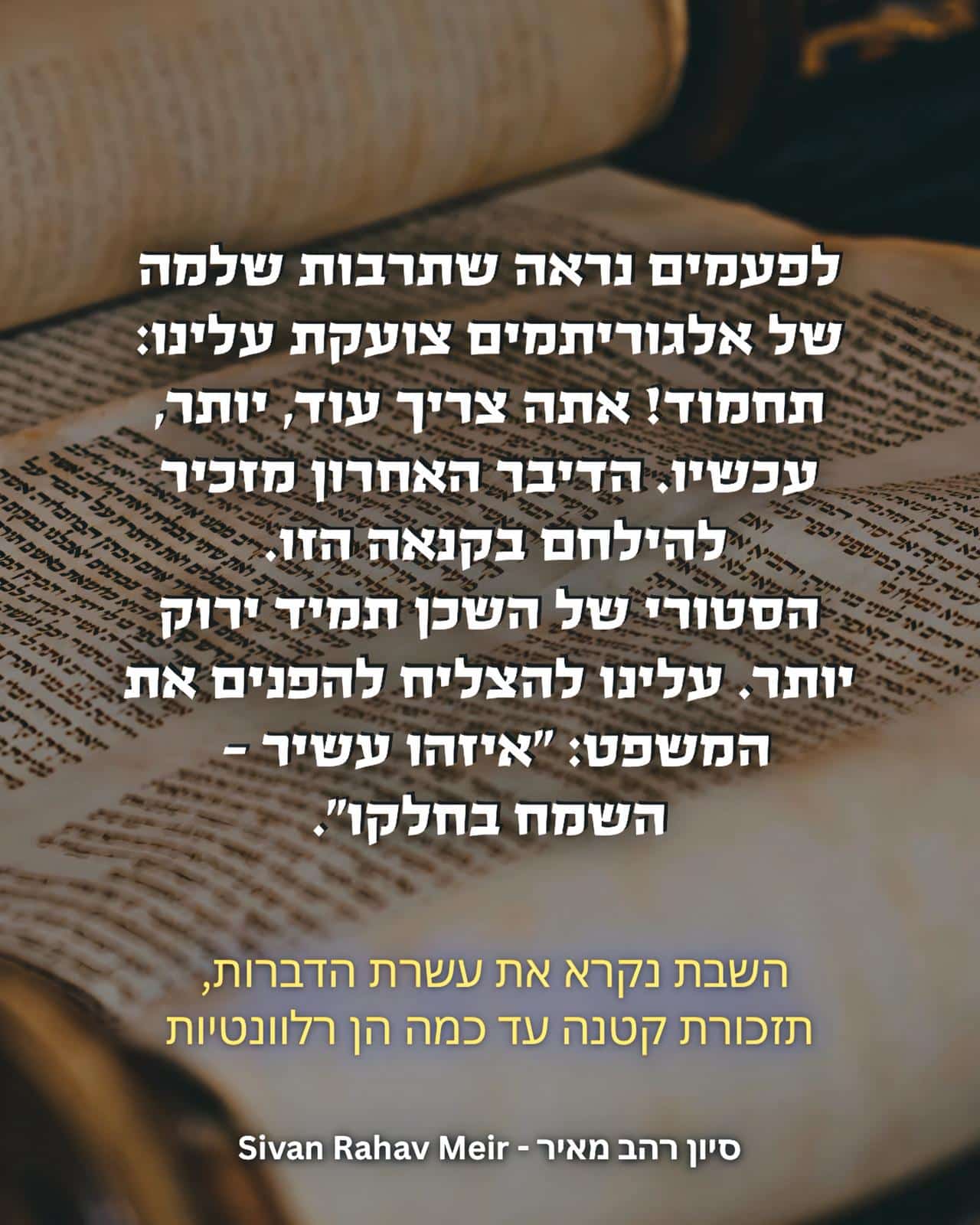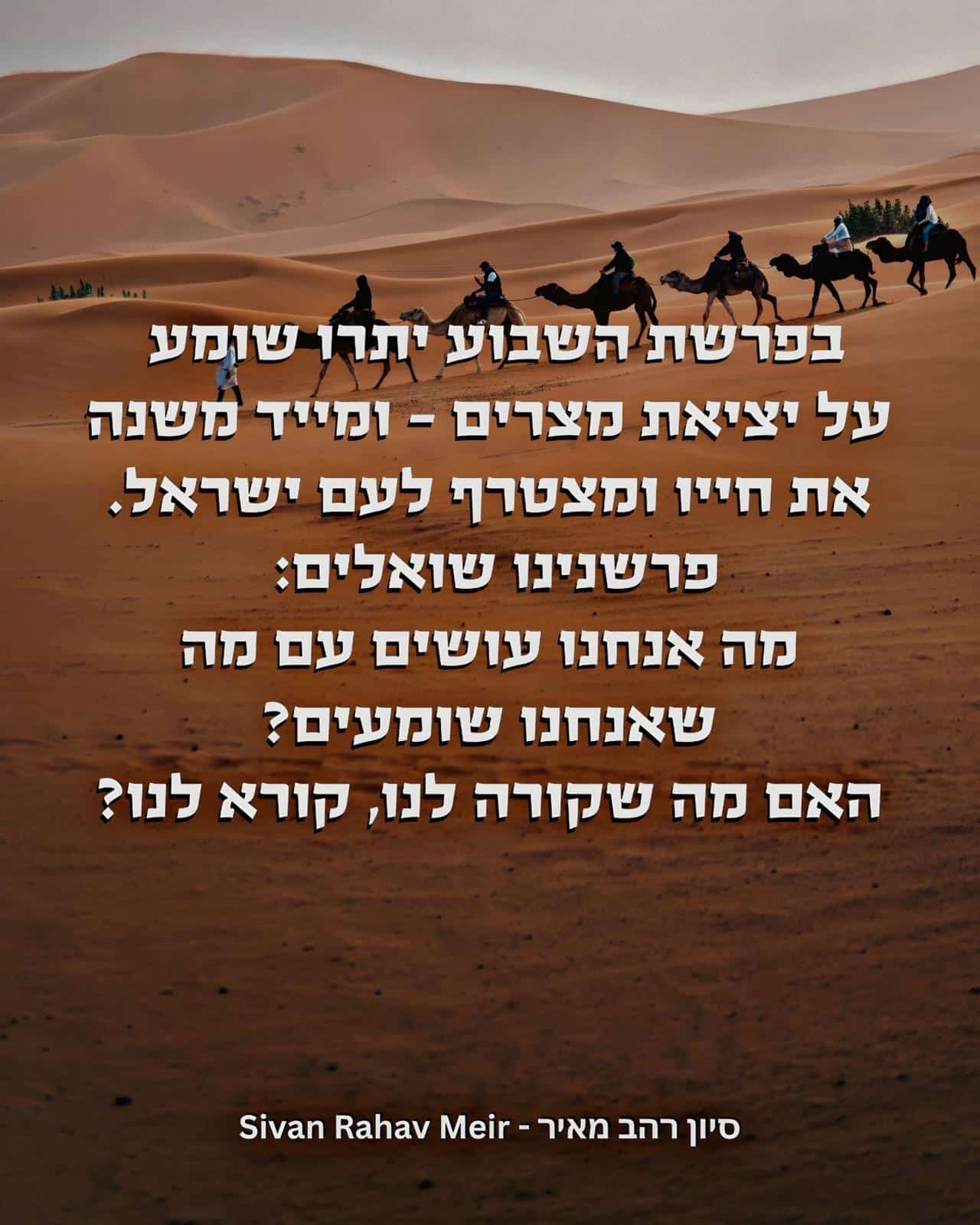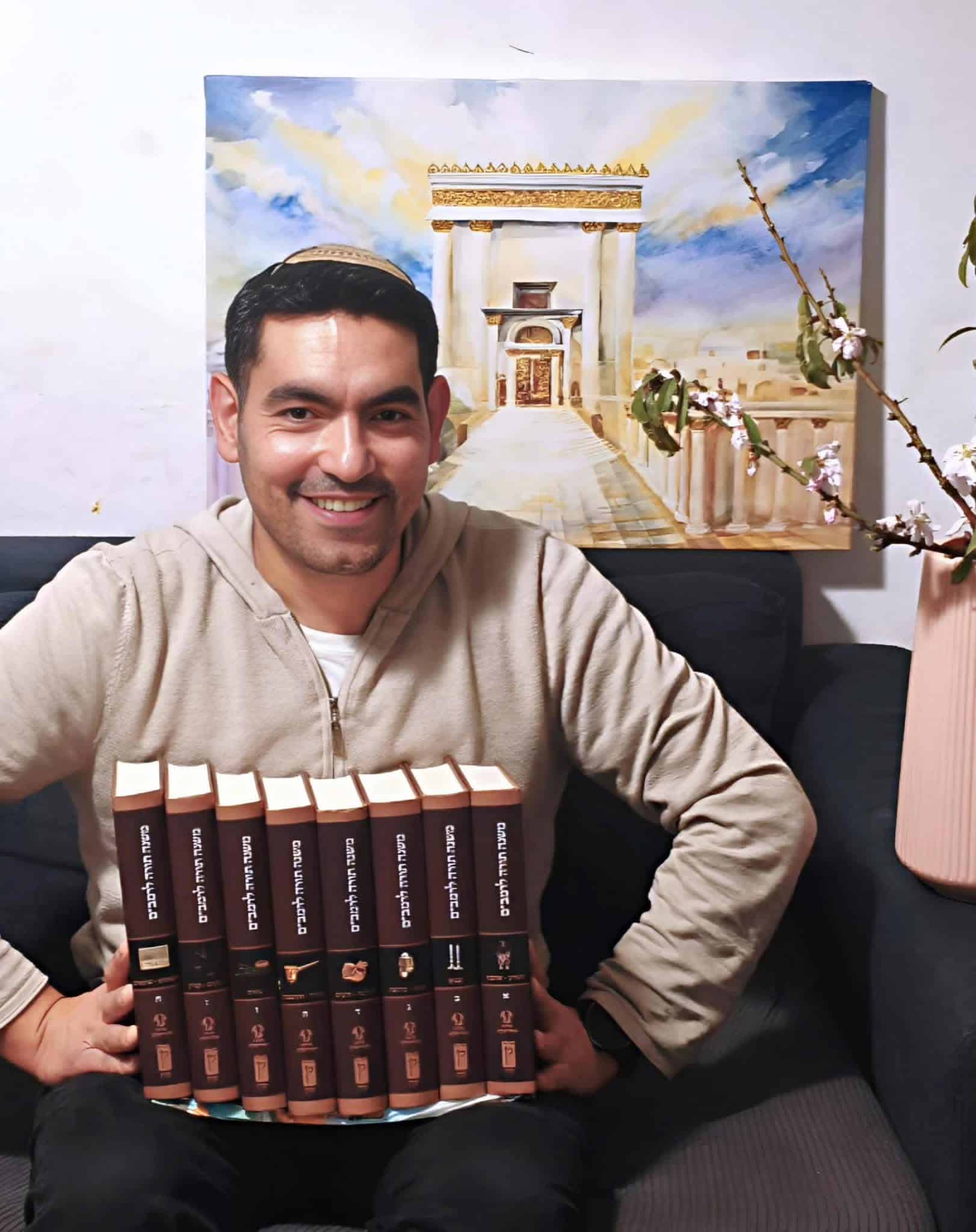* Translated by Janine Muller Sherr
1.
During these tense time in Israel, here is an open question for anyone reading this post: “You have been offered the opportunity to post a huge sign along the Ayalon, the main highway in Tel Aviv, that will remain there for a month. What message would you write on your sign?”
This is the question posed by media personality, Kobi Arieli, to his followers on Facebook this week. I encourage you to think about what your own sign would say.
The hundreds of responses posted included political messages on behalf of the Left or Right, words urging unity and strength during wartime, and also some humorous responses, such as, “Car for Sale,” or “Looking for a Babysitter.”
I thought about what my answer would be. If I were allocated a budget for producing huge signs that would grab the public’s attention, I would post
the verses of the weekly haftarah. Each week, after the Torah reading, we read the haftarah, an excerpt from the Prophets.
During the seven weeks following Tisha B’Av, we read seven haftarot of nechama—consolation. Week after week, we read beautiful words that speak of hope and redemption and overflow with optimism for the future.
Our ancestors read these very same words 800 years ago in Morocco and 200 years ago in Poland and did not give in to despair. Even during the Holocaust, these words filled the Jewish people with hope. It’s ironic that it is precisely in our generation, in which we have seen so many of these prophecies come true, that we are not as familiar with these powerful words.
This week, these are the words I would have posted over the Ayalon Highway:
“Arise, shine, for your light has dawned, the presence of God has shone upon you…Raise your eyes and look about: They have all gathered and come to you, your sons shall be brought from afar…In place of your having been forsaken and hated, with none passing through, I will make you an eternal pride, a joy for each succeeding generation.”
Israel will be the source of light, Jews from around the world will return to the Land, and the humiliation and hatred Israel once suffered will be replaced with universal admiration.
And these words were also recited in synagogues around the world:
“The cry, ‘Violence! —Hamas—shall no more be heard in your land, nor ‘Wrack and ruin!’ within your borders, and you shall name your walls ‘Salvation’ and your gates ‘Praise.’
In other words, the balagan—chaos— we are experiencing now will come to an end. Our borders will be quiet and peaceful. Our walls and gates will be called ‘salvation’ and ‘praise,’ because Israel will be known for its peace and prosperity. Isaiah the prophet articulated these words thousands of years ago and they have sustained us throughout all of our suffering and exiles.
If we can’t post these words on a huge sign over the main highway, at least let us learn and remember them here.
2.
The community of Naveh is part of the Eshkol Regional Council, on the southwestern border with the Gaza Strip. On the morning of Simchat Torah, after a series of unusual and relentless sirens, the community security officer, Omri Cohen, entered the shul to interrupt the services and send the residents to lock themselves in their homes.
Members of the emergency response team already understood what was happening in the neighboring communities — terrorist infiltrations, and Israelis murdered, injured and kidnapped. Terrorists had gained control of the nearby road, making it impossible to evacuate the wounded to to Soroka Hospital in Beersheva. And so, the place where the prayers had been halted was not turned into an improvised emergency clinic.
The residents of Naveh began to receive wounded people from the neighboring communities of Kerem Shalom, Shlomit, Prigan and the entire area.
Without cell phone reception, electricity, and mainly, without any military forces in sight, the Naveh emergency response team vigilantly stood guard. One of the members related that lacking proper equipment, he grabbed a pair of binoculars from his son's Bar Mitzvah gift pile. Meanwhile, local medical personnel set up a medical command center until helicopters arrived to evacuate the injured.
Due to the shortage of basic equipment, they used whatever was available. There were no stretchers to carry out the wounded, so they improvised and used a parochet (the curtain that covers the Torah ark). One specific parochet held symbolic significance; after the disengagement, it had been purchased by the residents of the former community of Atzmona in Gush Katif. The parochet accompanied them to their temporary location in Yated before moving with them to their permanent home in Naveh.
Fast-forward one year. Baruch Hashem, every one of the wounded who were in the shul that morning survived and are still alive. The residents of Naveh, who had been evacuated to Jerusalem under fire, returned to their homes as soon as it was possible. The blood-stained parochet was sent for cleaning, but the results were only partially successful.
Nevertheless, it was decided to leave the faded stains and turn the parochet into a cover for the bima (the stand for the cantor in the synagogue) and to embroider it with the following:
"B’damayich, chayi (live in their blood). During the events of Simchat Torah 5784, this beit midrash served as a first aid center for the wounded. This cloth was stained with their blood, restored, and returned to its sacred use, with its doubled sanctity. Tishrei 5785."
3.
Even during these turbulent times, Ishay Ribo’s concert tour in the U.S. is an important news story. Here is the note I received from a teacher in New York that convinced me of the monumental impact of this tour:
“Ishay Ribo performed at Madison Square Garden in front of an audience of tens of thousands of people. In fact, the arena was completely sold out! This was not merely entertainment but a significant spiritual event.The compass of American Jewry is starting to point in the proper direction.
People are always complaining that Jewish identity in America is depressing— formed in the shadow of the Holocaust and viewed as something ancient from a bygone generation. This perception has led to the high rate of assimilation among young Jews today. Steven Spielberg, Mark Zuckerberg and more are considered prototypes of the successful American Jew. But there is a better way to achieve success— by taking pride in your Jewish identity and traditions.
Judaism does not belong to our grandparents; it belongs to us—their grandchildren and great-grandchildren. It’s vibrant, exciting. and forward-looking and should be expressed with pride. After a year in which Israel has been associated with tragedies, funerals, and bereavement, this concert reminded us that what unites us, first and foremost, is all the good we have in common—the songs, the prayers, and, above all, the feeling of togetherness.
The day after his show at Madison Square Garden, Ishay Ribo performed at a smaller, but perhaps more important venue: Yale University. Rabbi Elchanan Poupko sent this report of that event:
“The same hall where Bob Dylan and the Rolling Stones once performed was transformed into a place where people were reciting Selichot and Psalms on behalf of our hostages, our soldiers, and for the entire Jewish people. After a year of double standards and antisemitism at Yale, after all the protests and demonstrations, this event might turn out to be the most important demonstration of all. We weren’t demonstrating against them but for us.”



